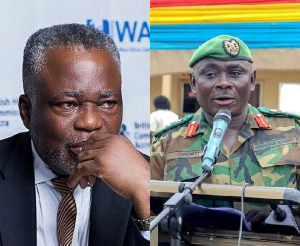Mozambique’s northern region of Cabo Delgado has from 2017 been the site of intermittent armed conflict between national forces and rebels now believed to be backed by terrorist group, Islamic State.
But fighting surged in the last week when the Islamist fighters described as “a group of terrorists sneaked into…Palma and launched actions that resulted in the cowardly murder of dozens of defenseless people”, according to Mozambique’s defense ministry. The siege on the town of Palma confined hundreds into what has been a hostage situation.
According to Human Rights Watch, locals described “bodies on the streets and residents fleeing after the… fighters fired indiscriminately at people and buildings”.
The number of people who have fled from the Cabo Delgado region in the last three years has been put in the tens of thousands by some estimates, with over 2000 killed. United States-based conflict-mapping firm ACLED says some 700,000 have been displaced in northern Mozambique since fighting broke.
Neither southern nor eastern Africa is unfamiliar grounds for rebel and terrorist violence. However, Mozambique faces an unenviably different kind of challenge currently.
Unknown enemies
One of the features of what is ongoing in Cabo Delgado is that the rebel forces are not known to the government of Mozambique, at least as far as the public and global observers are concerned. Mozambican forces know they are fighting forces who have sworn by violent Islamism but the motivation for their belligerence has not been clearly identified since the conflict broke out.
Among locals, these Islamists are called Al-Shabab, just like the Somali terrorist group whose name means “The Youth”. But there has been no establishment of a connection between the Mozambican forces and the Somali group. Al-Shabab itself is allied with Al-Qaeda.
Conclusions that affirm a link between the Mozambican group and Islamic State are based on a March 2020 propagandist video editorial put together and broadcast by the Amaq News Agency, ISIS’ news outlet. The video was of the attacks on northern towns Mocimboa de Praia and Quissanga which the rebels seized.
Apart from this, the Mozambican rebels publicized their loyalty to ISIS in 2019 even though that is often mistrusted by intelligence experts, The reason is simple: ISIS needs the fear factor on their side and any show of fealty far away from the Middle East creates a picture that the group is not dying despite the best efforts of the United States. For the rebels in Cabo Delgado, the notion in public minds that they are supported by ISIS is also a point that pays in their terrorist endeavors.
Other reasons contradict the ISIS connections. Last year, a video that circulated on social media showed a tall man without a mask and surrounded by fighters as he [the unmasked man] broke down why they had taken guns against the state. He explained that they felt discriminated against and so they launch violence “to show that the government of the day is unfair. It humiliates the poor and gives the profit to the bosses.”
He also noted that they are bent on establishing an Islamic state where they will be no place for “unbelievers”. Mozambique’s Muslim population is about 20%.
Evidence of Islamic radicalization in Mozambique goes as far back as 2007, according to social scientist Sergio Inacio Chichava, who spoke to DW. What happened ten years after Muslim leaders noticed the fundamentalism in some of the youth culminated in what has been the scourge since 2017.
Biggesr investment on the line
Another dimension that makes the violence up north of Mozambique different than others in that African sub-region is the fact that Cabo Delgado is the site of the single biggest investment in any sector of an African economy.
The French petroleum giant Total is undertaking a $20 billion investment in natural gas in the region. Last year, Face2Face Africa explained how much potential wealth the region promises
Mocimboa da Praia is about 50 miles from the Afungi peninsula in Cabo Delgado. The peninsula is one of Africa’s most fossil fuel-endowed regions boasting among its extractors, Total as well as the American firm ExxonMobil.
The oil and gas industry in the Afungi peninsula which began only about a decade-and-half ago is now estimated at over $45 billion. Over 10 million tonnes of liquified gas are expected to be shipped from Afungi starting in 2022.
Gong forward
Total issued a statement in the wake of the latest attacks saying “[t]he remobilisation of the project that was envisaged . . . is of course now suspended.” But the petroleum company also expressed support for trust in the Mozambican government’s ability to overcome the troubles.
Maputo is expected to fight tooth and nail, with the investments in Cabo Delgado firmly in mind. Northern Mozambique remains one of the poorest parts of the country and there will be attempts to concentrate military efforts within the general economic ambition.
That aside, the government will be mindful of the threat a growth in rebel strength poses to neighbors including Tanzania and Zimbabwe.
Africa News of Tuesday, 30 March 2021
Source: face2faceafrica.com

















